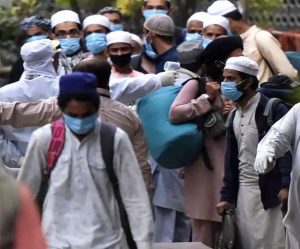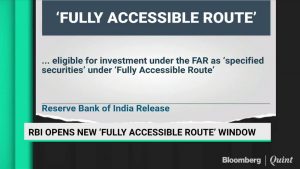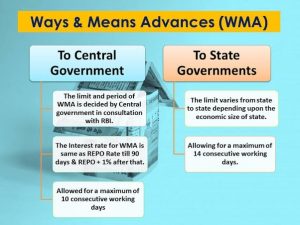Table of Contents
Daily Current Affairs for Government Exams:
Today Current Affairs:1st April 2020 for UPSC IAS exams, State PSC exams, SSC CGL, State SSC, RRB, Railways, Banking Exam & IBPS, etc.
Contents:
- Tablighi Jamaat
- ‘Fully Accessible Route’ (FAR):
- Covid-19 and the Orphan Drug Act
- Ways and Means Advance (WMA) :
- Other important current affairs
1.Tablighi Jamaat:

Over 200 have tested positive for COVID-19 from among 4,000-odd who had gathered in Delhi’s Markaz Nizamuddin, the headquarters of the Tablighi Jamaat.
Tablighi Jamaat:
- Literally, it means a society for spreading the faith. It is a conservative Muslim organization.
- It is a Sunni Islamic missionary movement.
- The aim is to reach out to ordinary Muslims and revive their faith, particularly in matters of ritual, dress, and personal behavior.
- It has a significant base in various countries including Bangladesh, Pakistan, the United States, Britain, Indonesia, Malaysia, and Singapore.
- Launched by prominent Islamic scholar Maulana Muhammad Ilyas Khandhalaw in 1926 in Mewat (Haryana).
- Its roots lie in the Deobandi version of the Hanafi school of jurisprudence.
- Maulana Ilyaz trained several young men from Deoband and Saharanpur and sent them to Mewat, where the Tablighi Jamaat established a network of madrasas and Mosque.
The Tablighi Jamaat is based on six principles:
- Kalimah, an article of faith in which the Tabligh accepts that there is no God but Allah and that Prophet Muhammad is his messenger.
- Salaat, or prayer five times daily.
- Ilm and dhikr, the knowledge and remembrance of Allah conducted in sessions in which the congregation listens to preaching by the imam, performs prayers, recites the Quran and reads the Hadith; the congregation also uses these sessions to dine together, thus fostering a sense of community and identity.
- Ikram-i-Muslim, the treatment of fellow Muslims with honour.
- Ikhlas-i-niyat, or sincerity of intention.
- Dawat-o-tabligh, or proselytisaton.
- It is estimated that the organization has somewhere between 70-80 million followers across the world, which makes it the biggest Muslim movement in the world.
- In fact, outside of the Hajj, it is believed that its annual meetings in countries, including Pakistan, Bangladesh, and India, bring together the largest congregations of Muslims.
2.‘Fully Accessible Route’ (FAR):

The Reserve Bank of India (RBI) has introduced a separate channel, namely ‘Fully Accessible Route’ (FAR), to enable Non-Resident Indians (NRIs) to invest in specified government bonds with effect from April 1.
- Eligible investors can invest in specified government securities without being subject to any investment ceilings.
- This scheme shall operate along with the two existing routes, viz., the Medium Term Framework (MTF) and the Voluntary Retention Route (VRR).
- The move follows the Union Budget announcement that certain specified categories of government bonds would be opened fully for non-resident investors without any restrictions.
- This will substantially ease access of non-residents to Indian government securities markets and facilitate inclusion in global bond indices.
- This would facilitate the inflow of stable foreign investment in government bonds.
3.Covid-19 and the Orphan Drug Act:

Recently, the World Health Organisation (WHO) declared the Covid-19 outbreak a pandemic. However, the United States Food and Drug Administration (FDA) declared Covid-19 an orphan disease or a rare disease.
- The FDA granted Gilead Sciences orphan drug status for its antiviral drug, Remdesivir, on March 23, 2020.
- Originally developed to treat Ebola, the drug is now being tested for treating COVID-19. Clinical trials are already in Phase III.
- But on March 25 Gilead announced that it had submitted a request to the FDA to remove its orphan drug designation for Remdesivir.
- Earlier, Gilead had sought the orphan status to the Remdesivir drug to expedite the approval of the drug. However, advocates for global access to medicines rejected the company’s argument.
- Gilead’s exorbitant pricing of its drug to treat hepatitis C and its drug to treat HIV also attracted attention in the past.
- In recent years, drug companies have been accused of exploiting the law to reap profits, in sales.
Orphan Drug Act, 1983 - Rare diseases became known as orphan diseases because drug companies were not interested in adopting them to develop treatments.
- In the U.S., under the Orphan Drug Act, companies are provided incentives to develop therapies, or orphan drugs, for rare diseases.
- The Act allows seven years of market exclusivity and financial incentives to innovators of these drugs. As a result, orphan drugs are often exorbitantly priced.
- Privileges under the Act may be conferred to companies for drugs to treat a disease that affect less than 200,000 people in the U.S., or for a disease that affects more than 200,000 people but for which there is no hope of recovering R & D costs.
- Covid-19, not a Rare Disease: The Orphan Drug Act applies to a potential drug for COVID-19, which is anything but a rare disease, with 800,049 confirmed cases across the world.
- Paradox: The U.S. FDA conferred the status of an orphan drug on Remdesivir proposed to treat COVID-19 a pandemic.
Rare Diseases
- A rare disease is a health condition of low prevalence that affects a small number of people compared with other prevalent diseases in the general population.
- There is no universally accepted definition of rare diseases and the definitions usually vary across different countries.
- Though rare diseases are of low prevalence and individually rare, collectively they affect a considerable proportion of the population.
- 80% of rare diseases are genetic in origin and hence disproportionately impact children.
- In India, there are 56-72 million people affected by rare diseases.
- There is also a demand for the reformulation of the National Policy for Treatment of Rare Diseases, 2017.
4. Ways and Means Advance (WMA) :

Recently, the Government has hiked Ways and Means Advance (WMA) limit with the Reserve Bank of India (RBI) by 60%.
- WMA limit is proposed to be revised to Rs 1.20 lakh crore and would be reviewed on a need basis (from Rs 75,000 crore last year).
- This is to compensate for the cash flow mismatch in Financial Year (FY) 21 expected from higher spending to combat the spread of COVID-19.
Ways and Means Advance scheme
- The Ways and Means Advances scheme was introduced in 1997.
- The Ways and Means Advances scheme was introduced to meet mismatches in the receipts and payments of the government.
- The government can avail of immediate cash from the RBI, if required. But it has to return the amount within 90 days. Interest is charged at the existing repo rate.
- If the WMA exceeds 90 days, it would be treated as an overdraft (the interest rate on overdrafts is 2 percentage points more than the repo rate).
- The limits for Ways and Means Advances are decided by the government and RBI mutually and revised periodically.
- A higher limit provides the government flexibility to raise funds from RBI without borrowing them from the market.
- The government has announced a Rs 1.7 lakh crore package (Pradhan Mantri Garib Kalyan Yojana) to provide income support, free food and other facilities to the poor to help them during the 21-day national lockdown.
- The fundraising resources are not only from the market but also from institutions such as the RBI.
- The Budget 2020-21 has pegged the Centre’s net market borrowing, including government securities, treasury bills and post office life insurance fund at Rs 5.36 lakh crore.
- Out of gross borrowings of Rs 7.8 lakh crore in FY21, the Centre has proposed to borrow Rs 4.88 lakh crore, or 62.56%, in the first half of the fiscal, as against 62.25% done in the previous fiscal.
- In FY21, the Centre also plans to issue the Debt Exchange Traded Fund comprising government securities to widen the base of investors.
- This will enable retail investors, who otherwise find it difficult to buy government bonds directly, take exposure in this risk-free instrument.
Other important current affairs:
1. The Government extended the existing foreign trade policy (2015-20) for one year till March 2021 amid coronavirus outbreak and the lockdown to contain the virus spread.
2. According to an article in the New England Journal of Medicine (NEJM), over 40 vaccines against the Novel Coronavirus (SARS-CoV2) are in various stages of development across the world. One of these vaccines is being developed by the Serum Institute of India (Pune, Maharashtra). Out of 40, only two vaccines are currently in clinical trials. However, a vaccine against coronavirus can be available only in the next 12-18 months at the earliest.
3. The Ministry of Tourism has launched a portal ‘Stranded in India’ to help foreign tourists who are stuck in various parts of the country. The portal strandedinindia.com consists of the various information that will be useful for the tourists in their time of need: Comprehensive information around COVID-19 helpline numbers or call-centers that the foreign tourists can reach out to for help are also available.
4. Director of the Indian Institute of Technology – Hyderabad (IIT-Hyderabad), has urged the government to consider the use of ‘bag valve masks’ as an alternative to meet any surge in demand for ventilators, in the wake of the COVID-19 pandemic.
5. This British-era law was recently invoked in Panchkula to curtail movement during the lockdown. Deputy Commissioner of Panchkula has passed an order under section 3 of this Act and has declared that all able-bodied male inhabitants of the villages be liable to be on patrol duty both during the day and night. The aim of the patrol in the present case is to keep a watch on people entering villages without a valid pass and to make sure villagers follow social distancing norms.
6.India and China mark the 1st April 2020 as the 70th anniversary of the establishment of diplomatic relations between them starting from 1950 till now.
7. Vice President Venkaiah Naidu has appreciated the commitment of virologist Ms Minal Dakhave Bhosale and her team at Mylab Discovery Solutions, Pune in developing India’s first testing kit for COVID-19. Bhosale gave birth to a baby girl just a day before submitting the kit to the authorities for evaluation.
8. In the wake of Coronavirus lockdown, National Gallery of Modern Art (NGMA) celebrated its 66th Foundation Day by launching a virtual tour of its permanent collection. It is for the first time that NGMA has provided the facility of the virtual tour of its permanent collection to art lovers.
9. Professor Arjun Dev, a renowned educationist and historian passed away.
10. According to the data released by the Ministry of Commerce and Industry, the eight-core sector industries recorded a growth of 5.5% in February 2020 which is highest in 11-months.
11. Recently, the Government of India slashed interest rates on small savings schemes, including the National Savings Certificate and Public Provident Fund to counter the economic fallout of the coronavirus pandemic. The move by the government has followed the Reserve Bank of India’s (RBI) recent 75 bps cut in its key interest rate.
Interest rates for small savings schemes are notified on a quarterly basis.
12. Tower and Infrastructure Providers Association (TAIPA) urged for quickly enhancing the telecom network capacity to cope with the rising data traffic amidst nation-wide lockdown. The data traffic has surged by 30% in the last few days as more and more companies are switching to Work-From-Home.
13. The Central government appealed in the Supreme Court that media outlets, in the “larger interest of justice”, should only publish or telecast anything on COVID-19 after ascertaining the factual position from the government. According to the government, “any deliberate or inaccurate” reporting by the media, particularly web portals, in the midst of an unprecedented situation can have a “serious and inevitable potential of causing panic in a larger section of the society”.
14. The Government of Andhra Pradesh modified the guidelines of Navatatnalu-Pedalandariki Illu programme. The scheme is called “Houses for all the poor”. The guidelines were changed based on the directions of the High Court. Under the scheme, house sites are to be allotted to the poor at Re 1 to the poor with white ration cards. The State Government is to collect Rs 20 from the people (Rs 10 for stamp paper charges and Rs 10 for lamination charges). The Beneficiaries shall use these sited to construct houses.
15. The Indian Council for Cultural Relations (ICCR) launched global painting competition on the title :United against CORONA-Express through Art.The ICCR aims to build cultural links between countries in the world. It tries to bring all the cultures united against the single emotion of fighting against the COVID-19 together. The event encourages artistic expressions of ideas, feelings and thoughts on social distancing, fight against the virus and quarantine.
16. The Defence Research and Development Organisation (DRDO) has designed a casualty evacuation bag to transport or isolate persons infected with COVID-19. This water and the air-proof bag are in the shape of a rigid cylinder. It is made of non-woven, water-repellant fabric with air and waterproof zippers as well as a ventilator with a film to cater Chemical, Biological, Radiological and Nuclear (CBRN) environment with requisite protection against blood and viral penetration.
17.Bharatpe has partnered with ICICI Lombard to roll out ‘COVID-19 Protection Insurance Cover’ for shopkeepers of the age group-18 to 65 years. On diagnosis of COVID-19 (positive), 100% of the sum will be given, irrespective of hospital expenses with a premium starting at Rs 199. It will also provide value-added benefits such as health assistance and CHAT/ virtual assistance, teleconsultation and ambulance assistance.




